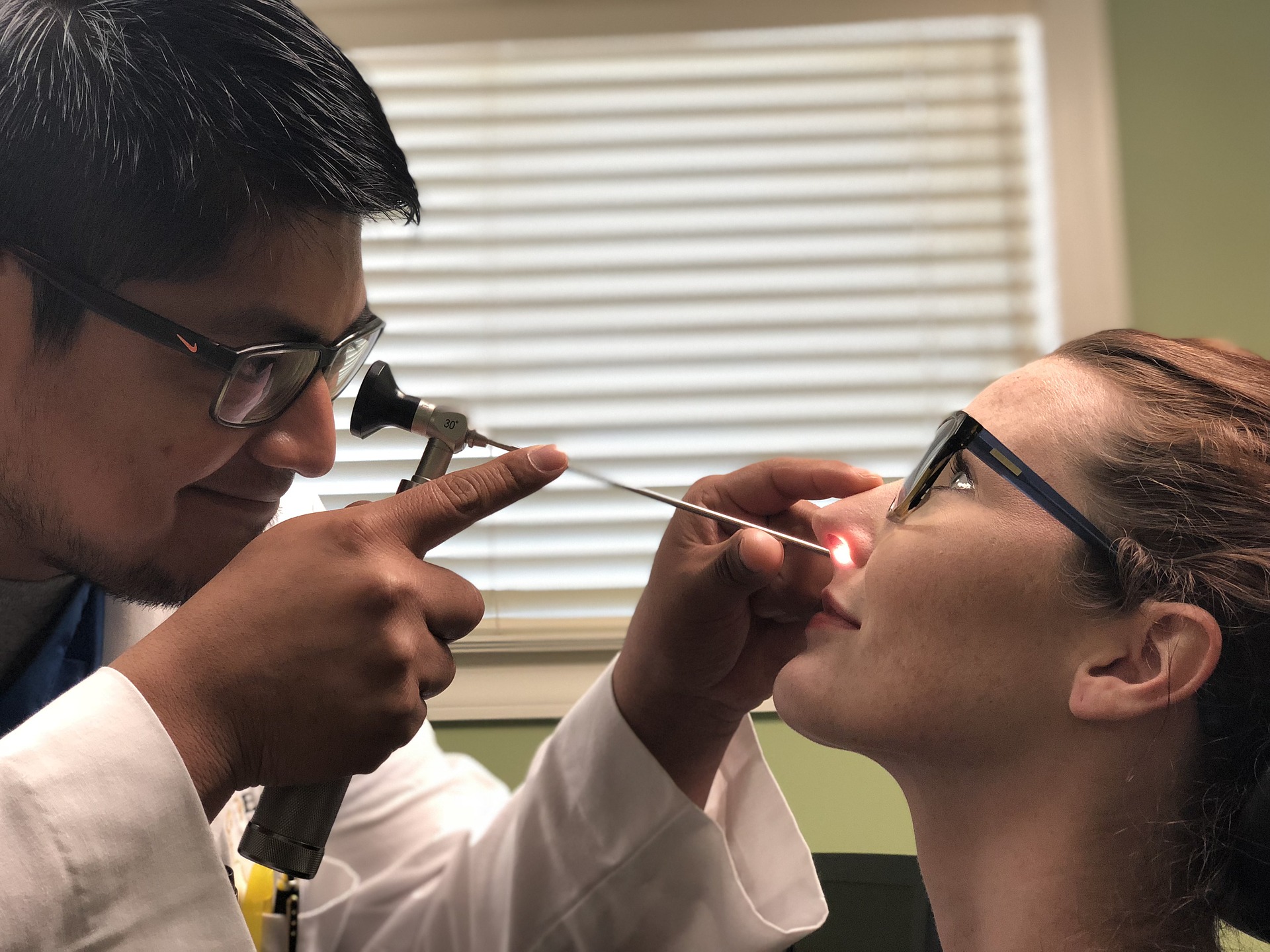Sinusitis is the name of a type of inflammation due to sinuses. It usually happens due to bacterial infection. However, in some cases, it can also be viruses and fungi mold. People who have weak immune systems can easily catch such symptoms of sinus. Here, we will help you prevent and fight such a condition.
Some patients with allergies can also have an allergic fungal sinus infection. The acute infection lasts about 3-8 weeks, depending on the sinus symptoms. However, if the infections prolong after eight weeks, it is a chronic condition. Sinuses are known as air-filled cavities that locate:
- Within the bony part of our cheeks
- Behind our eyebrows and forehead
- On both sides of the bridge on our nose
- Behind our nose and directly in front of our brain
If an infection of sinus cavity happens close to our brain, it can be life-threatening. This is why you need to diagnose the symptoms of sinus immediately and start treatment. There are rare cases of sinus that spread to our brains. However, such cases are fatal and can cause death.
Usually, sinuses have a line of thin layer filled with mucus. It traps unwanted particles like dust and germs from the air. Tiny hair-like particles in the sinus sweep the mucus towards the opening that leads to the back of our throat. Then, it slides down to our stomach; it is a regular body function that doesn’t cause harm.
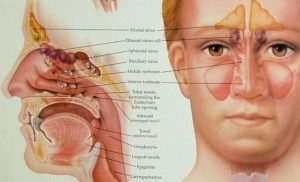
Table of Contents
How do you have a sinus infection?
When you have a sinus infection, it blocks the typical pattern of mucus flow from the sinus to the back of our throat. The tiny sweepers get blocked when allergies or infectious causes swelling in the nasal tissues. Moreover, swelling traps the mucus in our sinus and cause an infection.
Do you know that some of us have bodily detects that lead to sinus infection? Most common types of defects are:
- Deformity in the bony partition of the nasal passages
- Narrowing of sinus openings
- Nasal polyps or benign nasal growth with mucus
Facts
Here are some facts about sinus infection that tell you how common it is:
- Sinus infection, medically sinusitis, is a severe health condition that affects 31 million people in the US every year.
- At an average, American residents spend more than $1 billion to buy over-the-counter medicines to treat sinus.
- At an average, people appoint doctors 16 million times in a year for this problem and spend at least $150 million to buy prescription medicines.
- The worst part, if you have problems like asthma, allergies, structural blockage in the nose, or a weak immune system, it is more severe for you.
Symptoms of sinus
Many people confuse a terrible cold with a sinus infection. This is because the symptoms of sinus are similar to symptoms of cold—for example, facial pain, headache, nasal congestion, and runny nose. However, unlike cold, the symptoms of sinus happen due to bacterial infections. Moreover, the condition often needs sinus infection antibiotics for treatment than simple home remedies that work in other cases.
Common symptoms of sinus
Common sinus symptoms are:
- Discolored or greenish nasal discharge
- Postnasal drip
- Stuffiness in nose or congestion
- Tenderness on the face, especially under eyes or bridge of the nose
- Frontal headaches
- Pain in teeth
- Fever
- Coughing
- Bad breath
- Fatigue
Diagnosis of sinus infection
If you realize you have symptoms of sinus infection, you should immediately see your allergist. Before you feel scared about the treatment, let us tell you that there is nothing to fret. In most cases, the procedure for sinus infection is quick and easy. Remember that it is essential to treat quickly and avoid complications later.
How to diagnose sinus infection?
The diagnosis of sinus infections depends on the examination of your nose, sinuses, and throat. You can expect your allergist to look for:
- Redness
- Swelling of nasal tissues
- Face tenderness
- Discolored nasal discharge
- Bad breath
If your sinus antibiotic treatment doesn’t work or you have sinus problems for more than eight weeks, your doctor will recommend a CT scan. It will help your allergist diagnose the issues. The allergist will examine the openings of sinus and nose.
The examination includes a thin, long, and flexible tube with a small camera on one end and light on the other. It is pushed through the nose and not painful. Your doctor will give you a light anesthetic nasal spray so that you’re comfortable in the process.
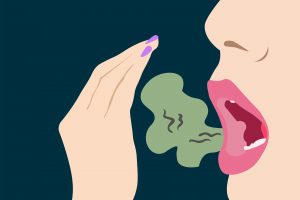
Types of severe fungal sinus infection
Here are two types of fungal infection in sinuses that need more attention than usual sinus issues:
Mucus culture
If you have a chronic sinus infection that hasn’t improved after several antibiotics, the mucus culture helps you determine the cause of the disease. Doctors take mucus samples from our nose. However, in some cases, your doctor might need mucus directly from the sinuses.
When you know a type of bacteria is causing the infection you have, it can lead to effective antibiotic therapy.
If fungus is the reason behind your sinus infection, it is essential to confirm its presence. Any fungal sinus infection needs antifungal agents for treatment – they might not work with antibiotics for other sinus infections. Some types of fungal infections don’t respond to the antifungal agents as well. In such a case, your doctor might recommend oral steroids.
In this case, you need to go through a sinus CT; the test will help find the extend of infection. Your doctor might send you to a specialist who caters explicitly to immunology and allergy. You will find the specialist check the underlying aspects like asthma, allergies, immune system disorders, or structural defects.
Biopsies
Biopsies are a severe type of fungal sinus infection that penetrates the nearby bones. In this case, you need to go through a bone biopsy to understand the extent of the condition. Biopsies involve sinus tissues taken with flexible instruments inserted through your nose.
The biopsies of sinus tissues help test immotile cilia syndrome – a condition that makes people have recurrent infections. It includes diseases like pneumonia and bronchitis, along with sinus infection.
How to cure sinus and symptoms permanently
Here are different methods of sinus treatment that can solve your problem permanently:
Antibiotics
For a bacterial sinus infection, your doctor will prescribe a standard antibiotic treatment. Usually, it takes 3-28 days for sinus treatment to cure. However, the type of antibiotic matters, as well. Since sinuses are deep-rooted in our bones with limited blood supply, some medications last longer due to severity.
Many people overuse antibiotics, and that causes a significant increase in resistance to the mediations. Thus, patients should take medicines for sinus only if the symptoms persist for more than seven days.
Antibiotics can help you resolve the sinus problem as it attacks the bacteria. However, until the drugs start working, it is difficult to alleviate the symptoms. Some over-the-counter medicines do help offer relief.
Nasal sprays for decongestion
Nasal decongestants that you can use topically can help you get rid of sinus within a couple of days. This helps shrink the nasal passages and facilities the flow of drainage from sinuses.
When you overuse topical nasal decongestants, it can result in a dependent condition. It this case, the nasal passage swells shut, and the phenomenon is called rebound.
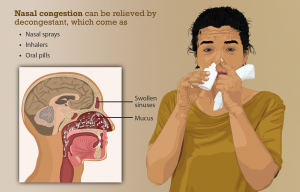
Antihistamines
Antihistamines block the inflammation that happens due to an allergic reaction. It helps fight the allergy symptoms that lead to nasal swelling and sinus passages.
Nasal decongestants with antihistamines
You can choose a combination of medicines with caution. Some drugs contain drying agents that thicken mucus. However, you must use them only if your doctor prescribes it to you.
Topical nasal corticosteroids
The prescription nasal sprays can prevent or reverse inflammation and swelling in your nasal passage or sinus opening. It addresses the most significant issues related to sinus infections. You can use the nasal corticosteroid topically to help shrink and prevent the return of nasal polyps. The average level of the spray doses doesn’t get absorbed in the blood, and you can use it for a long time without developing an addiction.
Saline washes
You can try saline washes for your nose to clear thick secretion of nasal passages. This remedy will give you instant relief and stop sinus problems.
Surgery
If none of the drugs are working for you, the last resort is having surgery. An otolaryngologist will help you go through this and target the anatomical defects in this condition.
Your surgeon might have to fix bone separation in nasal passages, remove nasal polyps, or open up clogged passages. Surgery for sinus happens under local anesthesia, and patients get discharged on the very day.
Home remedies for sinus and the symptoms
Here are some home remedies of sinus that can make your problem manageable if not cure permanently:
Drink lots of water
You need to flush out the virus from your system. To do that, you must keep yourself well hydrated. You must drink at least eight ounces of water every two hours.
Eat foods that have antibacterial properties
To fight the virus, you must add some anti-bacterial herbs and food to your diet. These can include garlic, onions, and ginger to your meals. Moreover, WHO recommends having 2-5 grams of fresh cloves or 300-1000 mg of garlic extract every day.
Ginger tea is another remedy that can solve this problem. Make sure you add honey for an extra boost as it comes with antioxidants and anti-bacterial properties.
Add moisture
When you keep your sinuses hydrated, they help you relieve pressure. Here are some tips for maintaining hydrated sinuses:
- Use a humidifier in your bedroom before you go to sleep at night. It reduces nighttime nasal blockage
- Once during the day and once before going to bed, use natural saline sprays. Buy them from a local pharmacist and fight congestion. You can use it a few more times if you want to. But you must consult a doctor for the same.
- Take a lot of steam and hot showers to breathe damp air. Fill a bowl with boiling water, lean over the object you pour it in, and take the steam for 10 minutes. Wrap a towel over your head to not let the steam go out. Make sure your nose is 10 inches above the water.
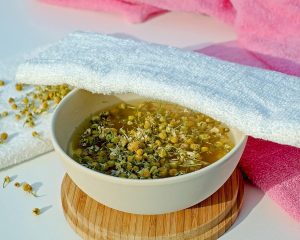
Use oils to clear sinuses
You can use eucalyptus oil to open sinuses and get rid of mucus. According to a study done by patients of sinusitis shows how the main ingredient of eucalyptus oil helped people recover fast. The study also included cineole, but eucalyptus oil did the trick. For this remedy, make sure you use food-grade essential oil. Rub one drop of both of the oils on the roof of the mouth and then drink one glass of water.
Buy a neti pot
A process of nasal irrigation can reduce sinus infection causes and symptoms. According to research, the use of neti pot and saline water can help chronic sinus conditions. You need to follow the steps given below:
- Fill a pot with saline water
- Incline head over your sink and keep it an angle of 45-degree
- Insert the spout of the pot into the top nostril and carefully pour the saline solution down the nostril
- Please do it again for the other nostril
Make sure you sanitize the neti pot after each use. Use distilled water for the process. Make sure your sink is clean as contamination having bacteria or parasites can make the condition worse.
Reduce facial pain using a hot compress
You can apply moist and warm heat to reduce sinus pain. Use warm and damp towels around the nose, eyes, and cheeks to ease out facial pain. It helps clear nasal passage from outside.
Final thoughts on relief of sinus symptoms
Now that you know how to get rid of the symptoms of sinus, it is time to use these remedies to prevent your cure the condition. Make sure you follow them as given and consult a doctor if the condition worsens.

